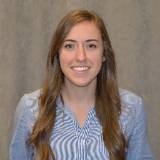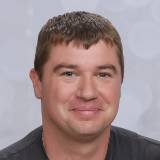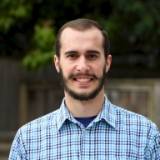Engineering
Engineering is the golden braid linked to most of humanity’s progress.
It can be argued that engineers have saved more lives than all the world’s doctors through the development of clean water supplies and sanitation. Engineering got us out of the caves, and it will take us to Mars and beyond.
Centralia College Engineering
The first two years of a bachelor’s degree in most fields of engineering can be completed at Centralia College. Engineering is a broad discipline and one pathway will not fit the requirements for all sub-disciplines contained within engineering. This led to development of statewide Major Related Program (MRP) pathways within the Associate of Science – Transfer, Track 2 Degree (AS-T2) to accommodate transfer into the various fields of engineering.
Upon completion of the appropriate degree (AS-MRP or AS-T2), students will be able to transfer to most four-year colleges and universities as juniors. However, entry into many engineering programs is competitive. Completion of this degree does not guarantee admission into a specific engineering program. Please see the planning and transfer guides in the sections below. In all cases, meet with an engineering advisor to formulate the optimal path for your situation.
Applied Physics and Engineering Club (APEC)
All the engineering paths will include a heavy dose of mathematics, science, and engineering classes. These develop the necessary technical skills. But, the transfer colleges and universities, and future employers, seek more than just technical skills. Soft skills are very important in almost all roles and industries, and are a trait of successful engineers. These include communication, problem-solving, organization, leadership, teamwork, adaptability, creativity, and interpersonal skills. A great way to develop these skills—and your resume—is to be active in the Applied Physics and Engineering Club (APEC). This student led club offers opportunities for leadership roles and research beyond the classroom. Here is an example of how high you can fly with APEC.
The primary branches of engineering are mechanical, civil, electrical, and chemical engineering. There are many other engineering subdisciplines and interdisciplinary subjects that often overlap with the four primary branches. All branches of engineering offer terrific employment prospects.
According to the website careerwomen.com here are the most in demand majors:
|
Top 10 Degrees in Demand (bachelor's degree level)
|
Top Degrees in Demand (master's degree level)
|
Top Degrees in Demand (doctorate degree level)
|
The first two years of a bachelor’s degree in Mechanical or Aeronautical/Astronautical Engineering may be completed at Centralia College. Completion of the courses in this schedule will satisfy the Mechanical MRP Associate of Science degree. Students will be able to transfer to most four-year colleges and universities as juniors. However, entry into many engineering programs is competitive. Completion of this degree does not guarantee admission into a specific engineering program.
High School Preparation: Students should focus on all the available courses in physics, mathematics, chemistry, computer science, and biology.
Educational Planning: Students should meet with an engineering advisor upon enrollment at Centralia College. Careful selection of classes each quarter is required to streamline the path to completion and ensure a smooth transfer to a baccalaureate institution. Some classes are only offered in certain quarters and many have prerequisites.
The example schedule below shows a selection of classes that would satisfy the AS-MRP and prepare a student for admission as a junior into the UW mechanical engineering program. To complete this in two years the student would have to enter Centralia College calculus ready and test into CHEM& 161. Many students will need to take preparatory classes before this. Some successful practicing engineers started their journey at Centralia College getting a GED.
Students’ schedules depend heavily on their level of preparation and intended major and transfer university.
The Mechanical/AA Transfer Guide (pdf) lists the admission requirements for baccalaureate ME programs in the state of Washington. Use it along with the Annual Course Offerings (pdf) and MRP requirements below to plan your schedule.
General Mechanical Engineering Education Plan
| First Year | |
| Fall Quarter |
|
| Winter Quarter |
|
| Spring Quarter |
|
Notes - * At least one Economics course is recommended, either ECON& 201 or ECON& 202.
** Pre-calculus may be needed prior to Calculus I. Check for specific prerequisites for transfer institutions, particularly, natural science and foreign language requirements.
*** Students are required to complete 3-5 credits in a Diversity course (D). A list of courses that satisfy the Diversity Requirement can be found in the college catalog.
****Elective must be chosen from Computer programming (CS& 131 or 141), Technical Writing (ENGL& 235), and Engineering Graphics (ENGR& 111 AND 112).
| Second Year | |
| Fall Quarter |
|
| Winter Quarter |
|
| Spring Quarter |
|
The first two years of a bachelor’s degree in Civil, Environmental or Construction Engineering may be completed at Centralia College. Completion of the courses in this schedule will satisfy the Mechanical/Civil MRP Associate of Science degree. Students will be able to transfer to most four-year colleges and universities as juniors. However, entry into many engineering programs is competitive. Completion of this degree does not guarantee admission into a specific engineering program.
High School Preparation: Students should focus on all the available courses in physics, mathematics, chemistry, computer science, and biology.
Educational Planning: Students should meet with an engineering advisor upon enrollment at Centralia College. Careful selection of classes each quarter is required to streamline the path to completion and ensure a smooth transfer to a baccalaureate institution. Some classes are only offered in certain quarters and many have prerequisites.
The example schedule below shows a selection of classes that would satisfy the AS-MRP and prepare a student for admission as a junior into the UW civil engineering program. To complete this in two years the student would have to enter Centralia College calculus ready and test into CHEM& 161. Many students will need to take preparatory classes before this. Some successful practicing engineers started their journey at Centralia College getting a GED.
Students’ schedules depend heavily on their level of preparation and intended major and transfer university.
The Civil/Environmental/Construction Transfer Guide (pdf) lists the admission requirements for baccalaureate CE programs in the state of Washington. Use it along with the Annual Course Offerings (pdf) to plan your schedule.
General Civil Engineering Education Plan
| First Year | |
| Fall Quarter |
|
| Winter Quarter |
|
| Spring Quarter |
|
Notes - * At least one Economics course is recommended, either ECON& 201 or ECON& 202.
** Pre-calculus may be needed prior to Calculus I. Check for specific prerequisites for transfer institutions, particularly, natural science and foreign language requirements.
*** Students are required to complete 3-5 credits in a Diversity course (D). A list of courses that satisfy the Diversity Requirement can be found in the college catalog.
****Elective must be chosen from Computer programming (CS& 131 or 141), Technical Writing (ENGL& 235), and Engineering Graphics (ENGR& 111 AND 112)
| Second Year | |
| Fall Quarter |
|
| Winter Quarter |
|
| Spring Quarter |
|
The first two years of a bachelor’s degree in Electrical Engineering may be completed at Centralia College. Completion of the courses in this schedule will satisfy the Electrical/CompE MRP Associate of Science degree. Students will be able to transfer to most four-year colleges and universities as juniors. However, entry into many engineering programs is competitive. Completion of this degree does not guarantee admission into a specific engineering program. For some transfer universities (UW Tacoma, Western Washington, or Eastern Washington) the AS-T2 degree may be a better option.
High School Preparation: Students should focus on all the available courses in physics, mathematics, chemistry, computer science, and biology.
Educational Planning: Students should meet with an engineering advisor upon enrollment at Centralia College. Careful selection of classes each quarter is required to streamline the path to completion and ensure a smooth transfer to a baccalaureate institution. Some classes are only offered in certain quarters and many have prerequisites.
The example schedule below shows a selection of classes that would satisfy the AS-MRP and prepare a student for admission as a junior into the UW electrical engineering program. To complete this in two years the student would have to enter Centralia College calculus ready and test into CHEM& 161. Many students will need to take preparatory classes before this. Some successful practicing engineers started their journey at Centralia College getting a GED.
Students’ schedules depend heavily on their level of preparation and intended major and transfer university.
The EE Transfer Guide (pdf) lists the admission requirements for baccalaureate EE programs in the state of Washington. Use it along with the Annual Course Offerings (pdf) and MRP requirements below to plan your schedule.
General Electrical Engineering Education Plan
| First Year | |
| Fall Quarter |
|
| Winter Quarter |
|
| Spring Quarter |
|
Notes - *Students are required to complete 3-5 credits in a Diversity course (D). A list of courses that satisfy the Diversity Requirement can be found in the college catalog. ** Pre-calculus may be needed prior to Calculus I. Check for specific prerequisites for transfer institutions, particularly, natural science and foreign language requirements. *** At least one Economics course is recommended.
| Second Year | |
| Fall Quarter |
|
| Winter Quarter |
|
| Spring Quarter |
|
Note - *** At least one Economics course is recommended.
The first two years of a bachelor’s degree in Chemical or Bioengineering may be completed at Centralia College. Completion of the courses in this schedule will satisfy the Chem/Bio MRP Associate of Science degree. Students will be able to transfer to most four-year colleges and universities as juniors. However, entry into many engineering programs is competitive. Completion of this degree does not guarantee admission into a specific engineering program.
High School Preparation: students should focus on all the available courses in physics, mathematics, chemistry, computer science, and biology.
Educational Planning: Students should meet with an engineering advisor upon enrollment at Centralia College. Careful selection of classes each quarter is required to streamline the path to completion and ensure a smooth transfer to a baccalaureate institution. Some classes are only offered in certain quarters and many have prerequisites.
The example schedule below shows a selection of classes that would satisfy the AS-MRP and prepare a student for admission as a junior into the UW bioengineering program. (Note: UW bio & chemical engineering only admit transfer students in spring quarter. This might necessitate spreading classes at Centralia over three years.) To complete this in two years the student would have to enter Centralia College calculus ready and test into CHEM& 161. Many students will need to take preparatory classes before this. Some successful practicing engineers started their journey at Centralia College getting a GED.
Students’ schedules depend heavily on their level of preparation and intended major and transfer university.
The ChemE/BioE Transfer Guide (pdf) lists the admission requirements for baccalaureate programs in the state of Washington. Use it along with the Annual Course Offerings (pdf) to plan your schedule.
General Chemical Engineering Education Plan
| First Year | |
| Fall Quarter |
|
| Winter Quarter |
|
| Spring Quarter |
|
Notes - * Choose one elective from CS& 131, CS& 141, MATH 264. ** If you need review prior to MATH& 151 Calculus I, you may take Pre-Calculus.
| Second Year | |
| Fall Quarter |
|
| Winter Quarter |
|
| Spring Quarter |
|
 Emily Allen
Emily Allen
Seven years ago, I timidly stepped into my first engineering course at Centralia College. Now I am designing soft robotic surgical devices thanks to the high-level instruction and inspirational faculty at CC.
The small class sizes and approachable professors at Centralia College encouraged me to engage in the classroom and learn concepts thoroughly. The foundational problem-solving skills I acquired at CC paved the way for a smooth transition to the mechanical engineering program at WSU. I recently completed my master’s degree in mechanical engineering with a focus on soft robotics, the branch of robotics that incorporates compliant materials to make robots more adaptable and less intrusive. As I continue research at WSU for my PhD, I am working to design a soft, steerable catheter device for minimally-invasive intravenous procedures.
My positive learning experience at Centralia College also inspired me to pursue a teaching career alongside my research endeavors. As I teach introductory engineering courses at WSU, I aim to facilitate the same level of engagement and hands-on learning that I experienced as a student at Centralia College.
 Ravi Patel
Ravi Patel
Before attending Centralia College, I wanted a job and career that I was excited for every day. I wanted to have the necessary tools and supportive environment to help me not only succeed but also figure out my dream. To be honest, I didn’t know what my dream was exactly when I started higher education, I’m sure most people don’t. But I did know my strengths and passions laid in STEM, and particularly towards engineering. That brings me to my time at Centralia College.
Most of my curriculum at Centralia College consisted of chemistry, physics, engineering, and math. I’ll admit, not all the material I learned in these classes stick with me to this day, but I’ve retained the fundamentals of each of those classes 4 years later. More importantly though, my STEM experience at Centralia College forced me out of my comfort zone and pushed me to learn new skills outside of the material that’s directly taught in class. I learned how to learn quickly and effectively. This included exercising office hours, tutoring, and other resources properly, working with my peers, and establishing strong time management skills. These are the skills that stick with me to this day. These skills allowed led to attend the University of Washington.
The classes and skills I developed at Centralia College created a smooth transfer experience for myself and opened up many new doors for me at the UW. I was admitted into the Aeronautics & Astronautics (A&A) Engineering program when I transferred, but more importantly, having the STEM credits that I had from Centralia College gave me the flexibility and preparation I needed to try other subject areas outside of A&A. I had and took the opportunity to learn about computer science and eventually switch majors to Computer Engineering. Although Computer Engineering is a relatively different subject area and curriculum than A&A, I had the foundations I needed to succeed in a different engineering field - to succeed to the point where I landed a dream job as a Software Engineer at Microsoft.
I’ve been working at Microsoft for about 10 months now. It’s bizarre but I’ve learned something new on the job every single day since I’ve started. That opportunity to learn gets me excited to come to work and maintain my passion for this job and industry. I’m making an impact on products (SQL Server) that major companies use, and I get to work with some of the most talented and hard-working people in the industry. On paper, sitting at a computer for 8 hours a day doesn’t sound exciting, but the job is much more than that. Using my resources effectively, collaboration, time management, these are all part of the job. Earlier, I described how I established these foundations at Centralia College. That’s why I say Centralia College trailblazed me to my dream job at Microsoft.
 Brandon Hicks
Brandon Hicks
I owe a lot of my success to the outstanding science courses, programs, and faculty at Centralia College. I was working a steady construction job, but I was ready for a career change and decided to attend Centralia College because of the location and affordability. With the help of an advisor, I decided to pursue a career in engineering and began taking Associate in Science – Track II courses.
After obtaining an associate degree in 2009, I transferred to Saint Martin’s University. The transfer process was relatively seamless because Track II is structured for transferring to engineering programs at four-year universities. The small class sizes and curricula offered at Centralia College prepared me well and I was ahead of the curve beginning my Junior year. I obtained a Bachelor’s of Science in Civil Engineering in 2011, graduated Summa Cum Laude, and was named graduating class engineering student of the year.
I completed college debt-free thanks in part to guidance from faculty at Centralia College. They stressed the importance of applying for scholarships to limit future debt and provided advice and feedback on applications. I was awarded over a dozen scholarships totaling over $50,000 my junior and senior years, including a nationwide scholarship from the American Society of Civil Engineers.
In my short professional career, I have advanced rapidly and held several private and public positions. My professional career has included stints as a Geotechnical Engineer / Project Manager for a private consulting firm, Construction Manager for Thurston County, Transportation Manager for the City of Tumwater, and I am currently the City Engineer for the City of Tumwater where I serve as the authority on matters regarding professional civil engineering, public works projects, and engineering design and development standards.
Centralia College served as a launching point for an exciting and rewarding career. The faculty went above and beyond to prepare me for transfer and career success. Choosing to attend Centralia College is one of the best decisions I have ever made and the return on my investment in education has been incredible.
 Jason Cowin
Jason Cowin
My time at Centralia College (CC) prepared me for my future education and career goals. After graduating from CC, I finished my bachelors in 2 years from to the University of Washington (UW). I spent 3 years working as a mechanical engineer until going to Washington State University to get a master’s in mechanical engineering. CC gave me a great foundation to achieve all of this.
While at CC I had the opportunity to work with Dr. Ruby Nagelkerke on an independent research project with a local recycling company. That was a great experience where I was able to apply what I had learned to answer real world questions. Under Professor Michael Threapleton’s guidance, I was part of a team of three engineering students that competed in a Human Powered Paper Vehicle competition. That competition really showcased peoples’ creativity. While at CC I was selected as a National Community Aerospace Scholar and given a chance to visit NASA in Huntsville Alabama and work on team project with other scholars from around the United States. It was great to meet lots of very bright people and learn more about the space program.
The transfer to the UW was a smooth process and I felt the classes at CC gave me a great foundation. The smaller class sizes at CC enabled me to ask questions and meet with professors much easier than the larger classes at UW. I felt I had just as strong as foundation in engineering as my peers had.
Another nice thing about going to CC was the friendships made there. I am still in contact with other engineering students from CC. One of my hobbies is competing in maker competitions with others. I am currently on a team of five engineers, four of which attended CC. We are developing an automatic sterilization device for keypads and door handles in light of the current pandemic. We are also planning on using another CC alum’s, Andrew Raappana, local molecular biology lab to verify the surfaces are sterilized.
All in all, I am thankful for my experiences at CC and glad for the opportunities that were available at CC. I would highly recommend anyone even just slightly interested in engineering check out the program at CC.
 Joseph Lawrence
Joseph Lawrence
My engineering degree started at Centralia College. Centralia College allowed me to earn an associates of science which transferred easily to Washington State University. Both the science and engineering departments have exceptional faculty that know their material and teach at university level. When I transferred as a junior, I felt more prepared than some of my class mates.
Centralia College also offers a learning environment that can be hard to find. Low student to faculty ratio, free peer tutoring, and the faculty’s open door policy provided me with the opportunity to grow and develop. Through financial aid and scholarships tuition was affordable.
I am a civil engineer at RH2 Engineering. We are a private firm that works on water, wastewater, storm, irrigation, and site development. Our work includes design and construction oversight on projects that range from booster pump stations, water mains, water system plan development, to water reservoirs. Recently I modeled the water system for a city in eastern Washington. I determined fire flow deficiencies to provide design recommendations for future population growth. At my job, I enjoy the ability to observe the construction of projects in the field after I design them in the office.
CONTACT
Michael Threapleton
Associate Professor
Office: WSC 318-H
360-623-8634
Email Michael Threapleton
